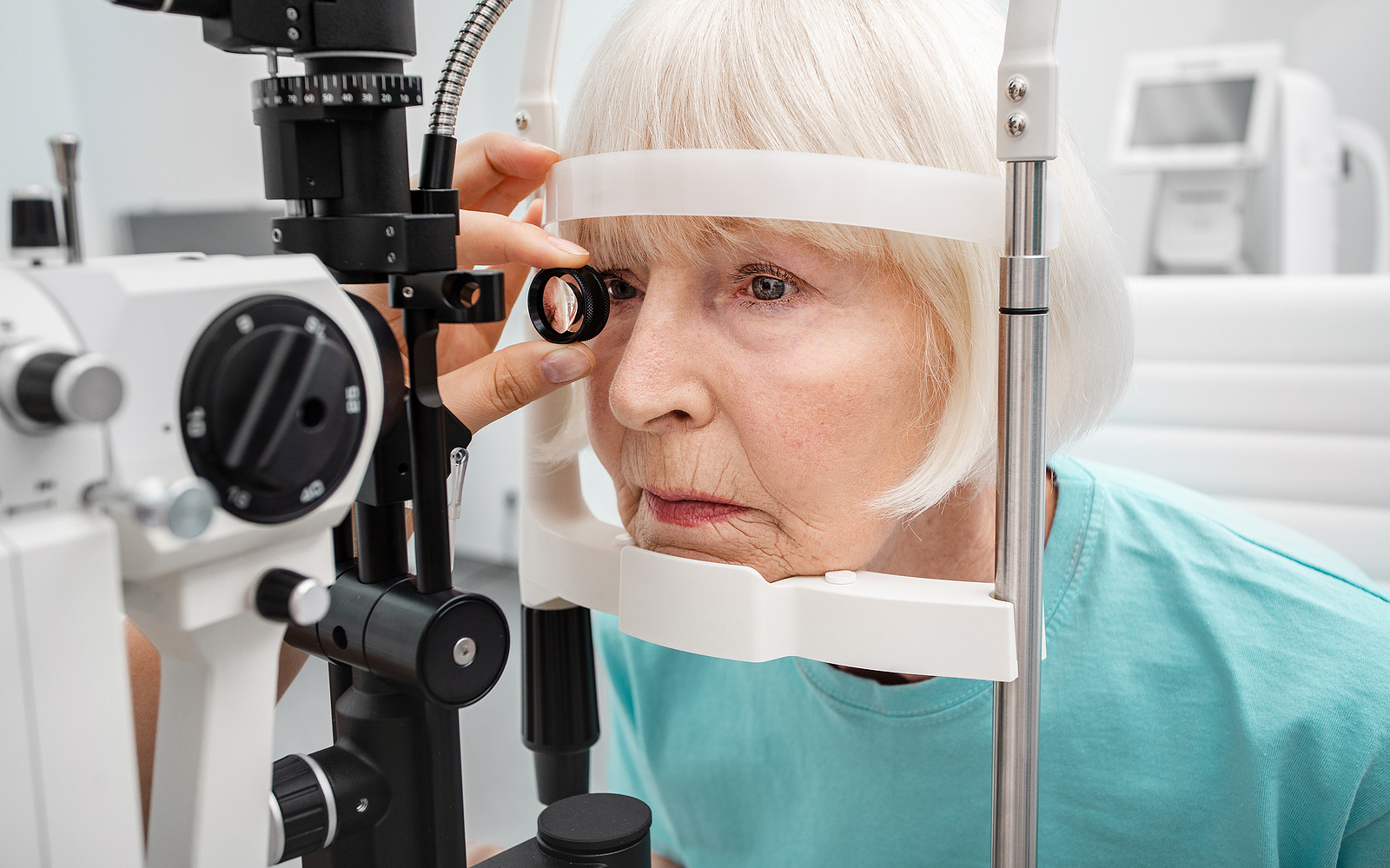Is It Safe to Drive at Night With Cataracts?

Is it becoming difficult to see at night? Are you noticing cloudy or blurred vision? These factors can severely impact your ability to drive safely at night and may be a sign of the early stages of cataract development.
What Are Cataracts?
Cataracts are a common progressive eye condition that affects the lens of the eye. Proteins in the lens break down as we age and create a cluster, causing cloudy or hazy vision. Other signs of cataracts include:
- Double vision
- Seeing yellowish or dull colors
- Difficulty driving at night
- Halos around bright lights
- Increased light sensitivity
- Requiring additional light to read
- Frequent changes to eyeglass or contact lens prescription
Eye care professionals can diagnose cataracts using a visual acuity test, slit-lamp examination, or retinal exam.
How Cataracts Affect Driving at Night
We need to have increased awareness and heightened senses and reflexes when driving at night, particularly when seasonal weather conditions or potential deer or other animal road crossings are factors. According to data from the National Highway Traffic Safety Administration, more than 39,500 fatal motor vehicle crashes occurred in 2021 — and more than 21,200 of which happened at night. Factors related to those crashes included poor visibility and road lighting, unclear lane markings, and driver behavior.
Conditions that impact vision, like cataracts, add further complications. Not only is it more difficult to see at night, but the appearance of halos around bright headlights from oncoming vehicles can increase the risk of an accident. Cataracts develop slowly and will progressively worsen and cause vision loss if left untreated, interfering with your quality of life.
If you are noticing signs of blurry vision or difficulty with night driving, it’s best to speak with an eye care specialist to understand what is causing your impaired vision. In the meantime, try to plan car trips during daylight hours whenever possible.
See Clearly Again With Swagel Wootton Eye Institute
Fortunately, cataracts can be corrected with cataract surgery, a common, minimally invasive procedure. In fact, more than 3.5 million cataract surgeries are performed each year in the U.S.
Our local, world-class doctors at Swagel Wootton Eye Institute are here to help you regain your peace of mind and drive worry free. We offer advanced laser technology with the LenSx Cataract Laser and ORA testing for the highest-quality and customizable treatment possible. With these options, a computer-assisted instrument allows us to make precise cuts to remove the cataract and replace it with an artificial lens. We then customize and improve the outcome using intraoperative aberrometry.
If you’re considering taking the next step with vision correction, our cataract self-test can help you determine whether it’s time for a cataract surgery evaluation. If it is, request an appointment today. Our surgeons have decades of combined experience and have helped thousands of patients improve their quality of life — and we’re ready to help you, too.
[DISPLAY_ULTIMATE_SOCIAL_ICONS]








